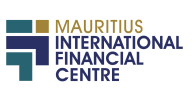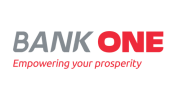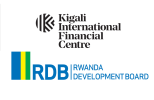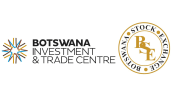The Growing Business Opportunities in Cameroon
Cameroon, a vibrant nation in Central Africa, is emerging as a promising land for business opportunities. Its strategic location and diverse economy make it an attractive destination for entrepreneurs and investors alike.

The country’s economy is a blend of agriculture, mining, and services. Douala, the largest city, serves as an economic hub, while the capital, Yaoundé, is the political and administrative center.
Cameroon’s membership in the Economic and Monetary Community of Central Africa (CEMAC) and the African Continental Free Trade Area (AfCFTA) further enhances its trade potential. These regional affiliations open doors to a larger market, fostering business success.
However, like any emerging market, Cameroon presents its own set of challenges. Infrastructure deficits and bureaucracy are among the hurdles businesses may encounter. Yet, with the right approach and understanding, these challenges can be navigated successfully.
This article aims to provide a comprehensive guide to the growing business opportunities in Cameroon. It offers valuable insights for those interested in exploring or expanding their ventures in this dynamic African nation.
Cameroon’s Strategic Location: A Gateway to Central Africa
Cameroon’s strategic location in Central Africa offers a unique advantage for businesses. It acts as a gateway to the region, providing access to a diverse and growing market.
The country shares borders with six nations, including economic powerhouses like Nigeria. This geographical advantage facilitates regional trade and opens up avenues for business expansion. Thus, Cameroon’s strategic position makes it an attractive destination for entrepreneurs and investors looking to tap into the Central African market.
A Snapshot of Cameroon’s Diverse Economy
Cameroon’s economy is one of the most diverse in Africa. It is characterized by a mix of traditional agricultural activities, mining operations, and a burgeoning service sector.
The country’s economic landscape is shaped by several key sectors:
- Agriculture: Dominated by cash crops like cocoa and coffee.
- Mining: Rich in resources such as bauxite, iron ore, and gold.
- Services: Rapid growth in areas like fintech, mobile technology, and telecommunications.
- Infrastructure: Significant development projects in roads and ports.
This diversity offers a wide range of business opportunities for both local and foreign investors.
Douala and Yaoundé: Economic and Political Hubs
Douala, the largest city in Cameroon, is the country’s economic powerhouse. It is home to the largest port in Central Africa and serves as a major hub for trade and commerce. The city’s vibrant business environment offers numerous opportunities for entrepreneurs and investors.
On the other hand, Yaoundé, the capital of Cameroon, is the center of political and administrative affairs. The city plays a crucial role in shaping the country’s economic policies and regulatory frameworks. Understanding the dynamics of these two cities is key to navigating the business landscape in Cameroon.
Regional Trade and Cameroon’s Role in CEMAC and AfCFTA
Cameroon is a member of the Economic and Monetary Community of Central Africa (CEMAC). This regional bloc enhances Cameroon’s trade relations with neighboring countries. It provides businesses with access to a larger market, fostering economic growth and diversification.
Furthermore, the African Continental Free Trade Area (AfCFTA) agreement presents new opportunities for Cameroon. It opens up a market of over 1.2 billion people across Africa. This development is expected to boost intra-African trade, offering immense potential for businesses in Cameroon.
Sector Spotlight: Agriculture, Mining, and Technology
Cameroon’s economy is diverse, with several sectors offering promising business opportunities. Agriculture is a key sector, employing a significant portion of the population. Cash crops like cocoa and coffee are major exports, while the potential for agribusiness and value-added processing remains largely untapped.
The mining sector also presents opportunities. Cameroon is rich in mineral resources such as bauxite, iron ore, and gold. The country’s extensive forest resources also support a thriving timber industry.
The technology sector is emerging as a significant player in Cameroon’s economy. Fintech and mobile technology startups are gaining traction, driven by increasing internet penetration rates. The following are key sectors for business opportunities in Cameroon:
- Agriculture and agribusiness
- Mining and timber
- Technology, particularly fintech and mobile technology














































